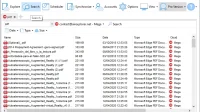Job loss can be a devastating experience that can shake your confidence, create financial stress, and leave you feeling lost. Whether you were laid off or fired, losing your job can be a difficult experience that requires careful planning and emotional resilience. If you’re struggling with job loss, here are some strategies to help you cope and move forward.
1. Allow yourself to grieve
Job loss can feel like a personal failure, and it’s natural to feel sadness, anger, and disappointment. Allow yourself to grieve the loss of your job and the changes it will bring to your life. Give yourself time to process your emotions and come to terms with your new reality.
2. Reach out for support
Don’t be afraid to reach out to friends, family, and colleagues for support during this difficult time. Talking to others who have gone through a similar experience can help you feel less alone and provide valuable insight and advice.
3. Create a plan
Take some time to create a plan for your next steps. Consider your financial situation, career goals, and personal needs. Update your resume and start networking with people in your industry. Research job opportunities and consider taking on freelance or contract work to help bridge the gap until you find a new job.
You can also read job vacancy in FreshJobph
4. Take care of yourself
Job loss can be stressful and take a toll on your physical and emotional health. Make sure you’re taking care of yourself by getting enough sleep, eating a healthy diet, and taking time to exercise and relax. Consider practicing mindfulness or meditation to help reduce stress and anxiety.
5. Focus on the positive
While job loss can be a difficult experience, it can also be an opportunity for growth and change. Try to focus on the positive aspects of your situation, such as the chance to explore new career paths or spend more time with your family. Keep a positive attitude and stay open to new opportunities and experiences.
6. Seek professional help
If you’re struggling with depression, anxiety, or other mental health issues as a result of job loss, consider seeking professional help. A therapist or counselor can provide valuable support and guidance as you navigate this challenging time.
7. Don’t give up
Remember, job loss is not a reflection of your worth or abilities. Don’t give up on your career goals and aspirations. Stay motivated and keep working towards finding a new job that aligns with your skills and interests.
8. Stay connected
Stay connected with your professional network by attending events, conferences, and other industry gatherings. This can help you stay up-to-date with industry trends and job opportunities, as well as provide valuable networking opportunities.
9. Consider a career change
Job loss can be an opportunity to explore new career paths and interests. Consider taking a career assessment or working with a career coach to help you identify your strengths, interests, and values. This can help you determine if a career change is the right move for you.
10. Practice self-care
Take care of your physical, emotional, and mental health during this difficult time. Make time for activities that bring you joy, such as spending time with loved ones, reading a good book, or going for a walk in nature.
11. Learn new skills
Consider taking classes or online courses to learn new skills or improve your existing ones. This can help you stay competitive in your industry and make you a more attractive candidate to potential employers.
12. Volunteer
Consider volunteering your time and skills to a local charity or nonprofit organization. This can help you stay engaged and give back to your community while also providing valuable experience and networking opportunities.
13. Take a break
If you’re feeling overwhelmed or burnt out, consider taking a break from your job search. Take a vacation or spend some time focusing on self-care and relaxation. This can help you recharge and come back to your job search with renewed energy and motivation.
14. Seek out free resources
There are many free resources available to job seekers, including job boards, career centers, and networking events. Take advantage of these resources to help you find job opportunities and stay connected with other professionals in your industry.
15. Set realistic goals
Set realistic goals for your job search and career aspirations. Break your goals down into achievable steps and celebrate each milestone along the way. This can help you stay motivated and focused on your long-term goals.
16. Get feedback
Consider reaching out to former colleagues or mentors for feedback on your resume and job search strategies. This can help you identify areas for improvement and make your job search more effective.
17. Keep an open mind
Stay open to new job opportunities and career paths. Don’t limit yourself to one industry or job title. Consider exploring different industries or job functions to find a career that aligns with your interests and skills.
18. Embrace change
Job loss can be a difficult and stressful experience, but it can also be an opportunity for growth and change. Embrace the changes in your life and stay open to new possibilities and opportunities.
19. Stay positive
Stay positive and keep a can-do attitude. Believe in yourself and your abilities. Remember that every setback is an opportunity to learn and grow.
20. Network
Networking is essential to finding a new job. Attend industry events, join professional organizations, and connect with others in your field on social media. This can help you stay up-to-date with industry trends and job opportunities, as well as provide valuable networking opportunities.
21. Stay organized
Keep track of your job applications, interviews, and follow-up emails in a spreadsheet or job search app. This can help you stay organized and keep track of your progress.
22. Learn from your experiences
Take time to reflect on your job loss and learn from the experience. Identify what worked well and what you could have done differently. Use this information to improve your job search strategies and become a stronger job candidate.
23. Be patient
Finding a new job can take time. Be patient and stay persistent. Keep a positive attitude and stay focused on your long-term goals.
24. Ask for help
Don’t be afraid to ask for help when you need it. Reach out to friends, family, and colleagues for support and advice. Consider working with a career coach or mentor to help you navigate your job search.
25. Stay informed
Stay informed about your industry and job market. Read industry publications and job boards to stay up-to-date with current trends and job opportunities.
26. Stay flexible
Stay flexible and adaptable in your job search. Be open to different job opportunities and willing to take on new challenges and responsibilities.
27. Practice gratitude
Practice gratitude and focus on the positive aspects of your life. Take time to appreciate the good things in your life, such as your family, friends, and hobbies.
28. Stay motivated
Stay motivated and focused on your goals. Keep a positive attitude and stay persistent in your job search. Remember that every setback is an opportunity to learn and grow.
29. Stay connected with former colleagues
Stay connected with former colleagues and employers. They can provide valuable references and job leads, as well as offer insight into your industry and job market.
30. Believe in yourself
Above all, believe in yourself and your abilities. Stay positive and stay focused on your goals. Remember that you have the skills and experience to succeed in your career.
Conclusion
Job loss can be a difficult and stressful experience, but it doesn’t have to define your future. With the right strategies and mindset, you can cope with job loss and move forward in your career. Stay positive, stay motivated, and stay focused on your long-term goals. Remember that every setback is an opportunity to learn and grow.








